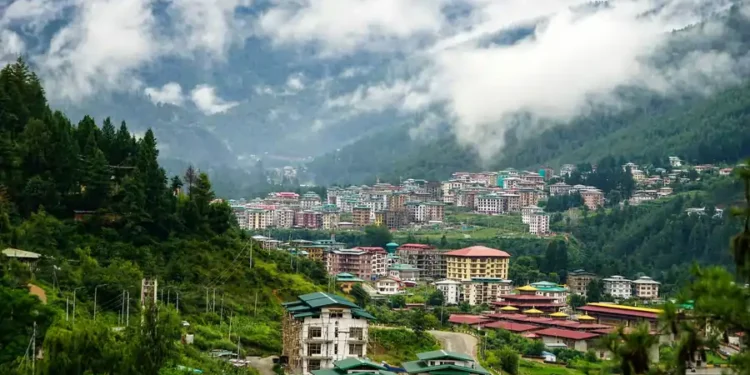Saturday, 21 February 2026

In a major boost to Bhutan’s green economic transformation, the World Bank has approved $34.5 million in financing to support job creation and value chain development in the country’s agriculture, livestock, and forestry sectors. The initiative is expected to benefit around 42,000 people, with 65 per cent of beneficiaries being women.
The newly launched Accelerate Bhutan’s Job Transformation through Renewable Natural Resource Value Chains Project aims to shift Bhutan’s Renewable Natural Resource (RNR) sector from subsistence-based activities to a modern, market-oriented system. The project will facilitate the creation of 12,000 full-time jobs by improving market access, trade readiness, and climate-resilient practices across high-potential value chains.
“This project will help unlock Bhutan’s green economic potential by transforming rural livelihoods through climate-smart practices, better market access, and value chain development,” said Cecile Fruman, Acting World Bank Country Director for Bhutan. “By connecting small producers with markets, fostering innovations, and boosting women and youth participation, Bhutan can create more and better jobs in a sustainable and inclusive way.”
The project targets key value chains such as dairy, citrus, potato, and emerging forest-based industries. It will help smallholder farmers adopt climate-smart technologies, access improved post-harvest facilities, and meet the compliance standards necessary for export markets.
To ease the burden on women, who constitute the bulk of Bhutan’s rural workforce, the project will provide labour-saving equipment and promote their integration into formal value chains. Matching grants and business development support will be used to foster productive partnerships between producers and private sector actors, with a strong focus on women- and youth-led enterprises.
“The project will foster productive partnerships between producers and market actors through matching grants and targeted business development support,” said Amadou Ba, World Bank Senior Agriculture Economist and Task Team Leader. “It will also help strengthen the capacity of government institutions to improve the business environment by upgrading food safety services, agricultural extension systems, and access to market information.”
In addition to its economic focus, the project has a strong climate agenda. It is projected to mitigate around 221,087 tons of CO₂ equivalent over 20 years by reducing food loss, promoting climate-smart agriculture, and encouraging sustainable value addition. This positions the project as a contributor to Bhutan’s longstanding commitment to carbon neutrality and environmental stewardship.
The $34.5 million package includes $29.8 million in concessional financing from the International Development Association (IDA) and a $4.7 million grant from the PROGREEN global fund. The World Bank has supported Bhutan since 1981, and this new initiative builds on a strong history of collaboration focused on inclusive growth, climate resilience, and sustainable rural development.